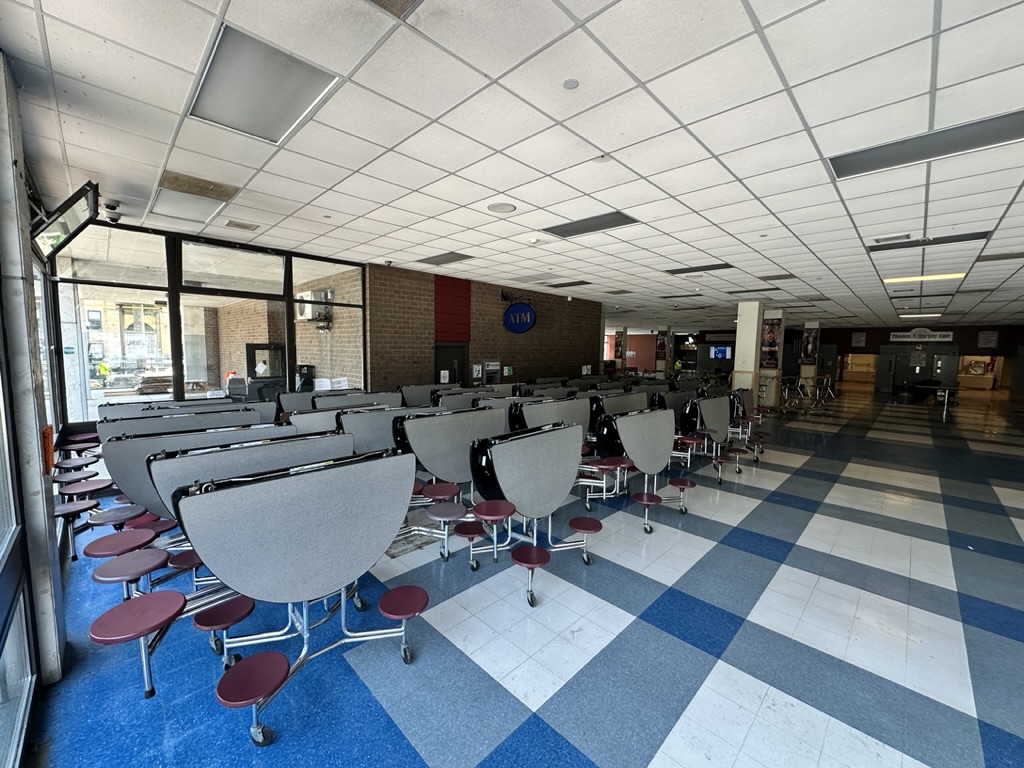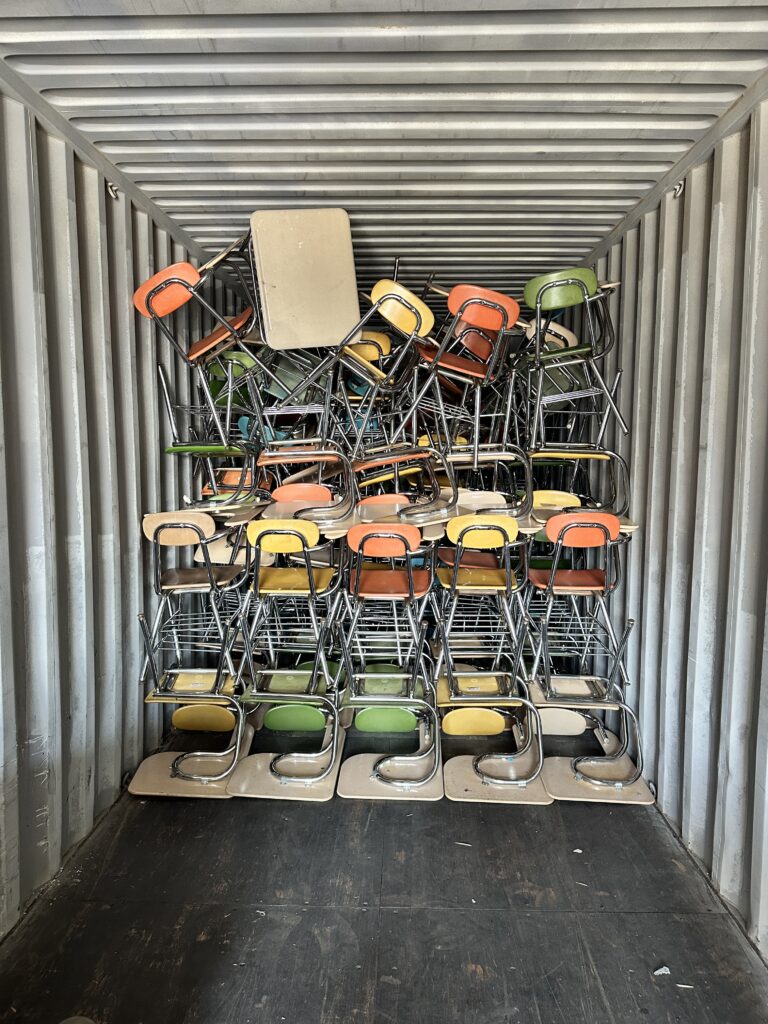Classroom Furnishings Benefit Children in the U.S., Haiti, and Turkey
WE WERE RETAINED BY THE SCHOOL DISTRICT UNDER FAC86 OF WHICH WE ARE LONGTIME CONTRACT HOLDERS
As Owner’s Project Manager for the Lowell (MA) Public Schools, Skanska USA retained The Reuse Network to arrange reuse of more than 3,500 furnishings from Lowell High School. The Reuse Network provided the furnishings to nonprofit educational and relief organizations working in Massachusetts, Connecticut, Georgia, Kenya, and Haiti.
Lowell Public Schools are undertaking a multi-million-dollar renovation of Lowell High School, with Skanska USA providing oversight as Owner’s Project Manager. The first step, before each phase of construction could commence, was to remove the existing desks, chairs, tables, bookshelves, and all the other furnishings that fill the high school. Not only from the classrooms, but from every space in the campus: library, art and music rooms, the cafeteria and kitchen, right down to the janitors’ closets.
Typically, old school furniture is treated as trash. When a school district remodels or builds a new school, they want it outfitted with new furniture and they buy it. There is little demand in the United States for the old stuff.
But in Lowell, school district managers and the School Building Committee are committed to sustainable building practices. The high school project is aiming for Leadership in Energy and Environmental Design (LEED) Silver Certification. All facets of the project have been scrutinized for ways to reduce their environmental impacts, and one of the most important is to reuse or recycle as much as possible. Also important is the message that reuse and recycling sends to students and the community; they demonstrate Lowell Public Schools’ commitment to preserve resources for the students now in the school system, and for the generations that follow. Throwing away the used but still usable school furniture wasn’t an option.
Skanska USA had already called on The Reuse Network for similar reuse assignments in Winchester, Pittsfield, Arlington, Dalton, and Springfield, Massachusetts. So it made sense to call again for Lowell. The Reuse Network in turn reached out to its network of charitable partners and identified a half dozen whose needs matched the Lowell High School inventory. Over the course of ten days, between the dates when students were excused for the summer and demolition contractors arrived with their wrecking equipment, a succession of tractor trailers and overseas containers arrived at the high school, were loaded by a moving crew from Sterling Corporation, and headed off to provide Lowell’s school furniture for disaster and poverty relief in communities in the U.S. and overseas.
Additionally, about 40 tons of metal items such as file and storage cabinets, which are not in great demand for reuse, were recycled locally.
When the final Reuse Network trailer pulled away, Lowell Public Schools had kept more than 100 tons of furnishings out of Massachusetts landfills and incinerators. Equally important, they had provided more than 3,500 pieces of long-lived school furniture to children who otherwise would have to do without.
Weeks later, an email and photos came back from one of the recipients, the Kkottongnae Brothers & Sisters of Jesus Village, a refuge for the poor and disabled in Haiti. The director of the nonprofit wrote, “The Village cares for the abandoned, homeless, those left in hospitals to die, children that are disabled, the physically challenged, the mentally ill. In residence are all ages from babies to elderly in their 90’s. This community has over 400 residents and staff. They were greatly appreciative for the school desk combos, shelving, and desks they received. Thank you for providing and restoring human dignity to all God’s children.”



